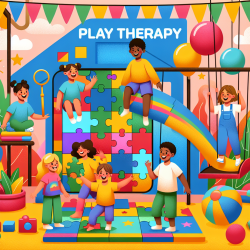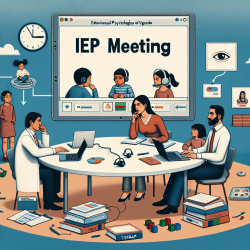As a practitioner working with children with autism, you are always on the lookout for effective interventions that can help improve their social, emotional, and cognitive skills. Play therapy, as highlighted in the research article "Play therapy in children with autism: Its role, implications, and limitations" by Elbeltagi et al., is one such intervention that holds great promise.
Play therapy provides a safe and structured environment where children with autism can express themselves, explore their emotions, and develop social skills. Here are some key takeaways from the research that can help you enhance your practice:
- Engagement in Play Activities: Play therapy encourages children to engage in activities of their interest, helping them express themselves in ways they are comfortable with. This is crucial for children with autism who may struggle with verbal communication.
- Behavioral Improvements: The therapy aims to shift children’s self-expression from unwanted behaviors to more constructive and non-injurious behaviors. This can significantly reduce instances of aggression, tantrums, and self-injurious actions.
- Social Interaction: Play therapy provides children with autism opportunities to experience different interaction styles, which can improve their social skills and help them relate better to their peers and adults.
- Personalized Interventions: Since every child with autism is unique, the research emphasizes the importance of tailoring play therapy to fit individual needs. Proper evaluation is mandatory to determine which type of play therapy suits a child best.
Implementing these insights can make a significant difference in your practice. Encourage further research and continuous learning to stay updated on the latest developments in play therapy. Your commitment to enhancing your skills can profoundly impact the lives of the children you work with.
To read the original research paper, please follow this link: Play therapy in children with autism: Its role, implications, and limitations.










